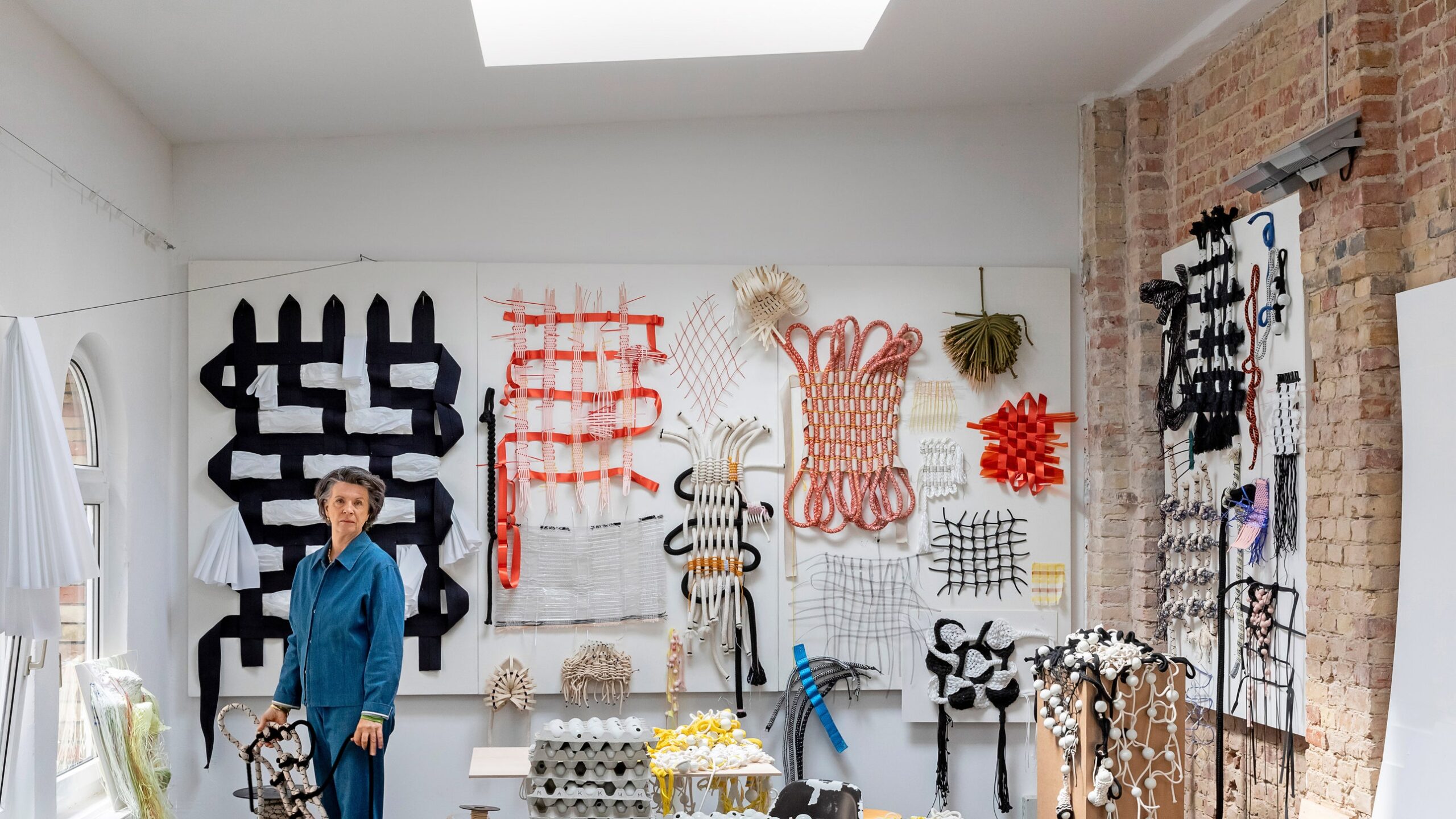Knotty macramé-like nets and large ceramic beads cover the worktable at Hella Jongerius’s bustling Berlin studio. The eye-catching, unusual material is an evolution of the curtain she hung in the United Nations Delegates Lounge in 2013—its beads were made by Royal Tichelaar, the oldest ceramic company in the Netherlands; the knots, a reference to Dutch maritime history. Now she’s using similar stuff to dress a series of wood tables and benches that will debut in her November show at Manhattan’s Salon 94 gallery.
“The future of good, socially responsible design lies in an evolution of content,” reflects the Dutch talent, whose practice has a distinctly circular quality, ideas and materials constantly recycled and reinvented. “I’m always trying to create an object that is not finished. Something that leaves options open for the user to interpret.”
This isn’t what we’ve come to expect from industrial designers, those experts we ask to consider function, precision, fabrication—and, perhaps above all else, a finished product—over abstract objectives like feeling or possibility. But this is what has set Jongerius’s work apart from her peers over the decades. Whether she’s collaborating with a gallery or with IKEA, she infuses craft and its implicit imperfection into her pieces to “give the object oxygen.”
In Berlin, the line between what is finished, unfinished, and somewhere in between blurs as she prepares for a comprehensive solo show that braids together her investigations in textiles, ceramic, and furniture. Glazed ceramic animal sculptures and fiber experiments that hang on the walls will soon be transferred to the Upper East Side gallery along with those new furniture pieces. Such creations, made as unique or limited-edition pieces, are fuel for her ongoing product designs—and vice versa. “They fertilize each other,” she explains simply. The show comes on the heels of the announcement that the Vitra Design Museum has acquired her archive, cementing her status as a key voice in the landscape of 21st-century design.

